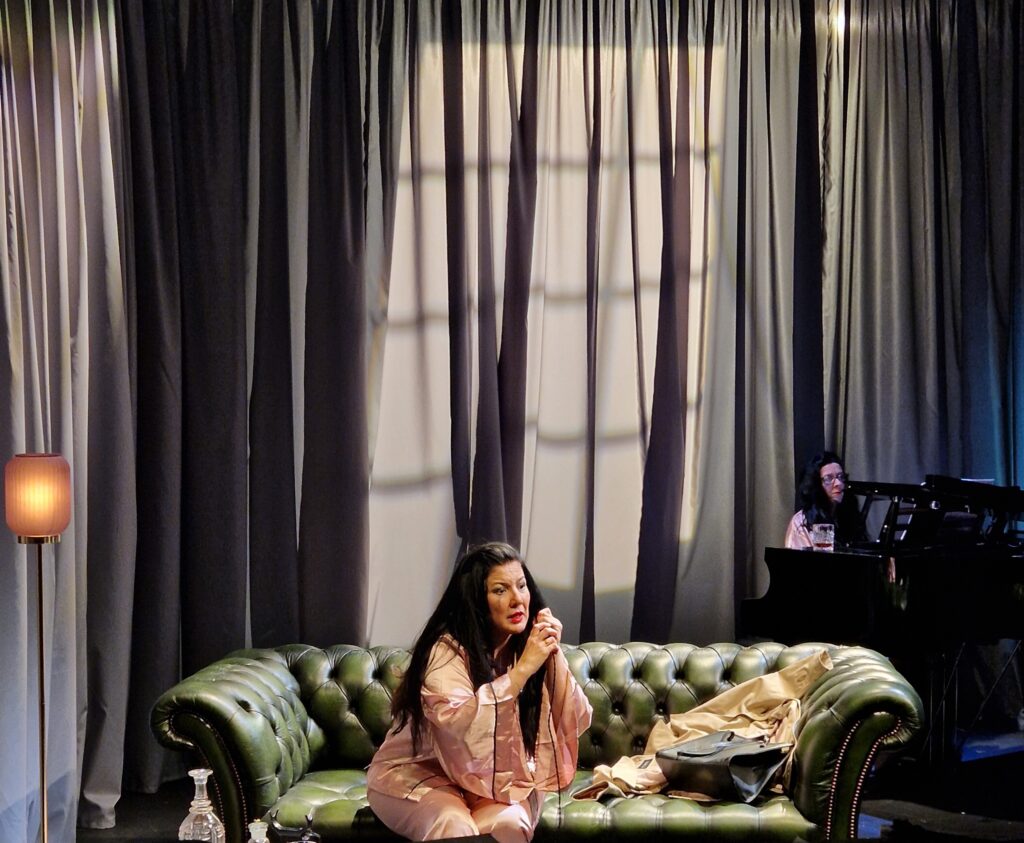Reviewed by Antonia Hebbert
4****
If you want an antidote to Christmas jollity, this one-hour, one-singer opera might be just the thing. A woman, Elle, talks on the phone to her ex-lover. There are crossed lines, wrong numbers and bad connections. At first she tells him she’s fine, and has taken a sleeping pill to help her rest. Later she says that was a lie, and that she has attempted suicide by overdosing on sleeping pills. She keeps saying it’s all her fault, and that she’s the one to blame. (We can sense that this is just the hopelessness of love and that he’s probably a complete b*****d.) She gets cut off, and tries to call him, but there’s no reply. He rings back, and she begins to suspect that he’s with his new lover. She confesses to being obsessed with the telephone, which she has been taking to bed at night. Behind her, images of a giant telephone cord winding ominously around, as she talks of wrapping the cord around her neck and tells him she loves him.
Natalia Lemercier is the soprano who sings this emotional glumathon, with musical director Elspeth Wilkes on the piano – they work beautifully together. Francois Poulenc wrote the original La Voix Humaine (1958) for a soprano with orchestra, but there’s an intimate intensity to voice and piano which seems right in this small theatre (the auditorium is quite grubby, and that seems appropriate too). The voice part is written to reflect speech patterns and the jumpiness of a bad telephone connection, and just occasionally soars. Lemercier sings it very sweetly and affectingly, while lighting cigarettes, stubbing them out and gulping whisky as she takes us down her private well of misery. She is briefly joined by Kelvin Giles on the clarinet – is he the man appearing for a moment? I confess I didn’t understand this, but it made an effective, eerie change of mood.
The set consists of a sofa, table for whisky, cigarettes and ashtray, and the piano. The original opera ends with Elle wrapping the cord round her neck and sliding to the floor. This version begins with Elle on the floor and her double on the sofa – one of them rises and becomes the piano player, which reinforces the claustrophobic, down-a-well mood of the piece. The opera is based on Jean Cocteau’s play La Voix Humaine (1928), which is an exploration of pushing drama to minimalist limit. This isn’t meltingly beautiful opera, but it is intriguing. The director is Alejandro Bonatto.

